This post may contain affiliate links. If you make a purchase through a link, I may receive a small commission, at no cost to you. These commissions help keep this website up and running, and I thank you for your support. Read my full disclosure here.
Disclaimers: I have in no way been influenced or paid to endorse these products.
I am not a medical professional. Talk to your doctor before attempting any treatments that may affect your health.
Always carry out a patch test before trying any product for the first time.
I have suffered from dandruff my whole life. My mother tells me that even as a baby, I had the dreaded ‘cradle cap’. As a child, my mother tried all kinds of medicated and natural treatments on my scalp. I remember her making me sit there as she applied baking soda paste to my scalp or smelly medicated shampoos. However, we never really gained control of it, and this problem continued into my adult years. It ranged from general dry scaliness to itchy, sore and sensitive scalp, and at its worst, even developed scabby lumps, very gross. Over the years, I have spent lots of money and time trying to treat it. Trips to the GP would just result in prescriptions for even stronger medicated shampoos. They did help, but the effects would eventually wear off, and they would stop working (a common problem with dandruff treatments), and I would have to switch to another product. This cycle continued for years, and it never completely cleared up.
Over time, I became concerned about the potential side effects from prolonged and continuous use of these mediated shampoos. For example, common ingredients in dandruff treatments include coal tar, which in high concentrations may increase your likelihood of developing cancer, and topical ketoconazole and selenium sulphide, which can cause irritation, dryness and even hair loss.
In my attempts to find a safe treatment that worked, I spent some time researching dandruff. I discovered that I was not alone, apparently at least half of us are plagued by dandruff. It was originally believed that dandruff was caused by a fungus called Malassezia globose which feeds off the oils on our skin and hair. As it feeds, it produces oleic acid, which can irritate our skin. However, recent research¹ has found that bacteria also plays an important part, more specifically the two most common bacteria living on the scalp, Propionibacterium and Staphylococcus. Modern medicated treatments have been targeted around treating the fungi but have neglected to treat the bacterial issue.
Dandruff can also be caused by a range of conditions, from seborrhoeic dermatitis, tinea capitis, eczema, and psoriasis. Cold, dry weather can also cause a general dry, scaly, flaky scalp and hard water can cause soap scum and mineral build-up, resulting in powdery dandruff.
From my research, I knew I needed to find a treatment that would treat the fungi and bacteria, but that was also soothing, moisturising and healing. So I started looking for natural products that could help.
Lemongrass
If you enjoy eating Asian food, then you will probably have heard of lemongrass before. It looks a bit like fat spring onions, but the stalk is quite woody, and it has a very distinct and pungent lemon smell that I find uplifting. As well as being delicious in Asian foods, lemongrass also has anti-fungal properties². There is a considerable amount of research³ ⁴ that demonstrates the efficacy of lemongrass essential oil on treating the yeast associated with dandruff (I’ve only included a few of them in my references).
Tea Tree Oil
Tea tree oil, also known as melaleuca oil, comes from the leaves of the Melaleuca alternifolia, which is native to Southeast Queensland and the Northeast coast of New South Wales, Australia. It is used in traditional medicine by the indigenous people because of its anti-bacterial and anti-fungal properties. Research⁵ has also shown it to be useful in the treatment of dandruff. I discovered this product whilst living in Southeast Queensland and since then I always keep a bottle in my first aid kit at home. It has a pungent camphoraceous smell, which I really enjoy, but may not be to everyone’s taste. But beware, it is toxic when taken by mouth and should only be used externally.
Manuka Honey
Manuka honey is produced in New Zealand by bees that pollinate the Manuka bush. As a New Zealander, I grew up with manuka honey and love it not only for its delicious taste, but also because of its healing properties. In 1981, researchers at New Zealand’s University of Waikato discovered that Manuka honey has a considerably higher level of enzymes than regular honey. These enzymes create a natural hydrogen peroxide, methylglyoxal and dihydroxyacetone that work as an antibacterial. These three key ingredients are referred to as the Unique Manuka Factor (UMF), a global standard in identifying and measuring the antibacterial strength of Manuka. It is not considered beneficial unless it carries a UMF 10+ level of antibacterial activity. As not all Manuka honey contain this level of UMF, when purchasing it, it is important to look for the following:
- UMF trademark is clearly labelled on the front of the container.
- It will be from a New Zealand UMF licensed company and labelled in New Zealand.
- It will have the UMF company’s name and license number on the label.
- It will have a UMF rating number of 10+. If it is labelled without the UMF or without a number, then it is not the genuine article.
Coconut Oil
The coconut oil craze has been around for a while. When a new craze starts, I’m always a bit cautious and like to spend time trying it myself and trying to be as unbiased as possible. However, I really do enjoy using it both for cooking and my DIY beauty products. Coconut oil comes from the nut (fruit) of the coconut palm, and when used on the scalp, it has a soothing, moisturising, anti-inflammatory effect and has some antimicrobial properties.
Vinegar and Lemon Juice
Apple cider vinegar is great at reducing itching, especially for psoriasis, and can also help to remove soap scum and mineral buildup that can cause powdery dandruff. Lemon juice is also effective, the citric acid is great for those with oily hair as it can shrink your pores and reduce oiliness. Both lemon juice and vinegar can also give your hair shine.
Apple cider vinegar is milder and often preferred by those with coloured hair. However, some blondes find it can give their hair a red toned tint. In that case, you should try using white vinegar instead.
(FYI: I’ve also tried using Shikakai powder, which I reviewed. It’s a natural shampoo alternative, but personally, I did not find it had any effect on my dandruff, however, other people do, so it might be worth a try.)
How to Treat Dandruff Naturally
Scalp Treatment Ingredients
- 1 teaspoon of coconut oil
- 3 drops of tea tree essential oil
- 6 drops of lemongrass essential oil
- 1 teaspoon of manuka honey diluted in a ¼ cup of hot water*
Hair Rinse Ingredients
- 2 tbsp up to ¼ cup (depending of the length of hair) of apple cider vinegar or white vinegar or Lemon juice diluted in 2 cups of warm water.
You will also need to play around with the dilution of the vinegar, as everyone’s hair responds differently. Use more vinegar for oily hair and less for dry hair.
[icon name=”exclamation-triangle” class=”” unprefixed_class=””] Warning:
- Some blondes find that apple cider vinegar can give their hair a red toned tint. In that case you should try using white vinegar instead.
- Lemon juice can lighten your hair colour, which is great for those of wanting to create some natural highlights.
Directions
- Mix the coconut, tea tree, and lemongrass essential oil together in a small dish. If the coconut oil is hard, microwave it for 10-20 seconds to melt it. It has a low melting point so is quick and easy to melt. Just be careful not to overheat it, otherwise you could burn yourself. Alternatively, you can save on washing up by just mixing them up in the palm of your hand. The coconut oil will quickly melt from the warmth of your hands.
- Gently massage the oil mix onto your scalp using your fingertips. Leave on the scalp for 30 minutes.
- Before jumping in the shower, prepare your diluted manuka honey and your vinegar or lemon juice rinse and take them into the bathroom with you.
- Once in the shower, shampoo your hair as normal. After rinsing out your shampoo, pour the diluted honey onto your scalp and gently massage it in. Leave it on your scalp for 5 minutes (I like to give the shower a clean or shave my legs while I wait), then gently rinse it out using the diluted vinegar or lemon juice. Make sure the rinse is poured over the scalp and massaged through your hair. Leave the rinse to sit on your hair and scalp for a minute before rinsing it out with warm water.
Following this treatment, you can apply conditioner to your hair as normal. However, the coconut oil can be difficult to rinse out, so you might not want to use very much, especially on your scalp. If you have dry and/or curly hair like me, then the residual coconut oil is really a bonus as it has the added benefit of defining and controlling curls and smoothing out the frizz. However, those with oily hair may benefit from a repeat shampoo before rinsing with the vinegar/lemon juice rinse.
*UMF grade manuka honey is expensive, so this can be omitted if you can’t afford it.
Recommended Treatment Regime
If you have really bad dandruff, then I suggest carrying out this treatment three times a week until you get it under control. You are not going to get rid of your dandruff overnight! You need to carry out regular treatments. Then, depending on the intensity of your dandruff, once your dandruff has cleared up, you may only need to repeat the treatment once or twice a month to maintain a healthy dandruff free scalp.
You should also purchase a Dry Scalp Paddle Brush with natural bristles to massage and stimulate your scalp. It also helps to brush out the flakes and build up on your scalp.
References
¹Zhijue Xu, Zongxiu Wang, Chao Yuan, Xiaoping Liu, Fang Yang, Ting Wang, Junling Wang, Kenji Manabe, Ou Qin, Xuemin Wang, Yan Zhang & Menghui Zhang. Dandruff is associated with the conjoined interactions between host and microorganisms. Scientific Reports 6, Article number: 24877 (2016); doi:10.1038/srep24877
²Shadab, Q., Hanif, M. & Chaudhary, F.M. (1992) Antifungal activity by lemongrass essential oils. Pak. J. Sci. Ind. Res. 35, 246-249.
³Chaisripipat, Lourith, Kanlayavattanakul. Anti-dandruff Hair Tonic Containing Lemongrass (Cymbopogon flexuosus) Oil. Forsch Komplementmed 2015; 22:226-229. doi: 10.1159/000432407
⁴Wuthi-Udomlert M, Chotipatoomwan P, Panyadee S, Gritsanapan W. Inhibitory effect of formulated lemongrass shampoo on Malassezia furfur: a yeast associated with dandruff. Southeast Asian J Trop Med Public Health. 2011 Mar;42(2):363-9.
⁵Satchell AC, Saurajen A, Bell C, Barnetson RS.Treatment of dandruff with 5% tea tree oil shampoo. J Am Acad Dermatol. 2002 Dec;47(6):852-5.

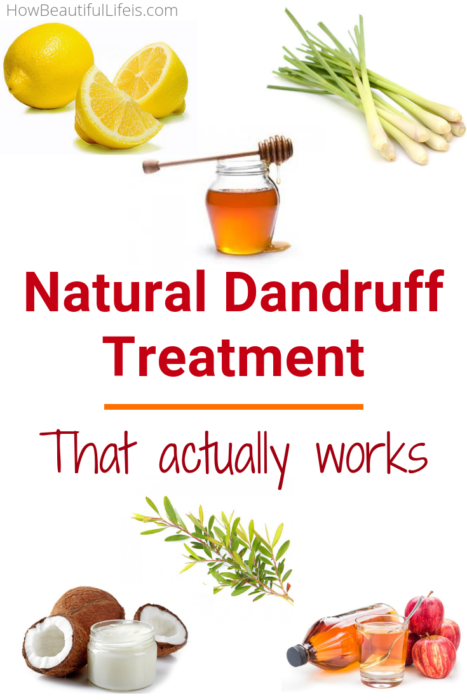
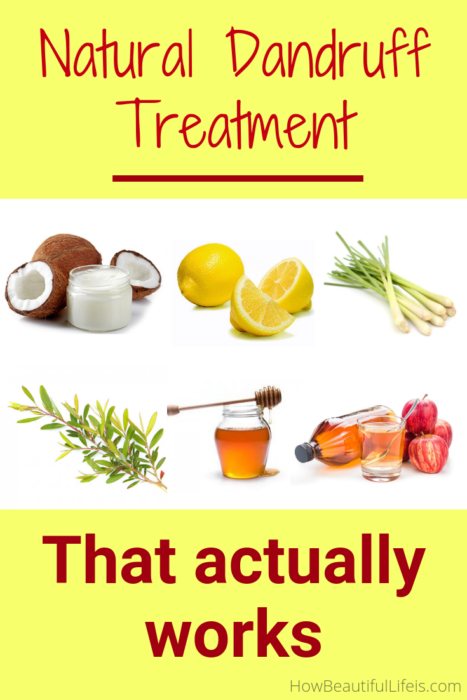
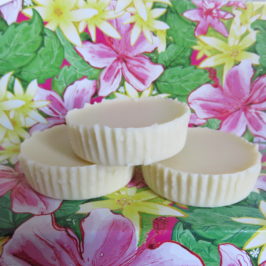
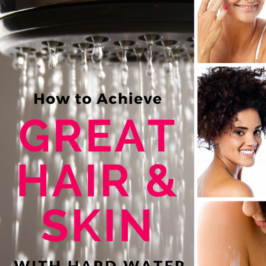
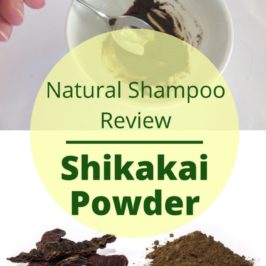
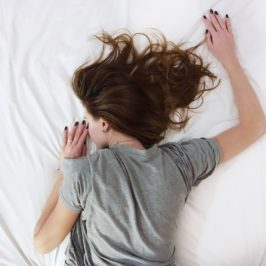

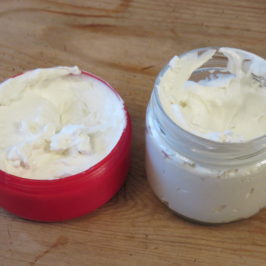
Leave a Reply